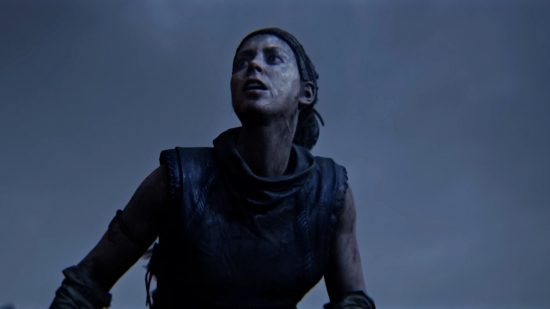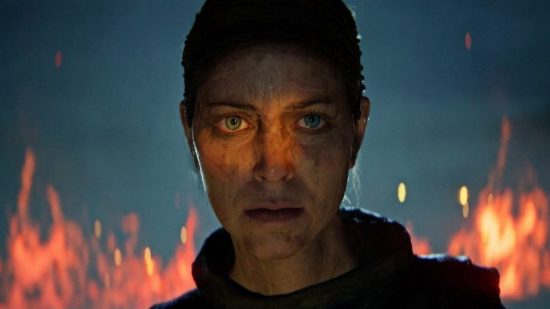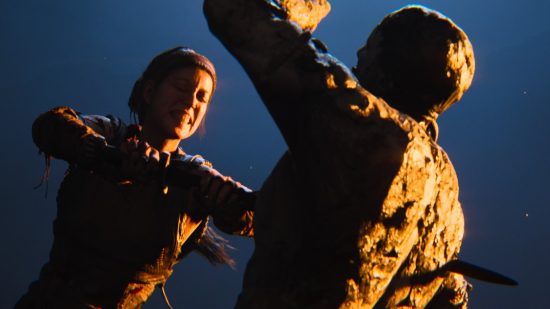The next chapter of Hellblade 2 is almost here, and we’re already mentally preparing ourselves for the journey ahead. Senua’s Saga is set to follow in its predecessor’s footsteps in its representation of how the titular Pictish warrior perceives the world – both within and without. As studios push for photorealism to depict fictional worlds in which gore, violence, and brutality are commonplace, in-house mental health support services for developers and performers are more important than ever. With this in mind, I ask Ninja Theory studio head Dom Matthews and Senua actress Melina Juergens how the studio approaches taking care of its people as much as its players.
Please be aware that this report contains references to psychosis, which may be upsetting to some readers.
“We have mental health advisors within the team and we also offer external counseling that we have on hand for everyone in the studio,” Matthews assures during our Hellblade 2 preview, and Juergens confirms these resources have been helpful during the action-adventure game’s development.

Hellblade 2 aligns closer to the grounded violence of The Last of Us 2 than the visceral action engineered by the likes of Dead Space Remake’s ‘peeling’ system, but Senua’s psychosis and extended periods of mental distress present an added emotional strain for both player and performer. “I put a lot of my own real-life trauma into the character,” Juergens divulges. “I suffered from psychosis before in my early twenties. I still suffer from anxiety and various other things.”
It’s common knowledge that Juergens had no prior acting experience before her work on Senua’s Sacrifice, though her BAFTA Games Award for Best Performer speaks for itself. There’s no question that the role is physically and emotionally demanding – Juergens told PCGamesN back in 2017 that all her motion capture scenes for Senua’s Sacrifice were “real emotions, real tears, real screams.” Hellblade’s character-driven script demands that Juergens inhabit Senua to a degree that few other videogame performers have experienced, but it also offers the opportunity for catharsis.
“In those scenes, it’s more of a way of processing my own trauma. I’m reliving it on the stage because I connect it to my real-life experience,” Juergens explains. “I see it as an outlet. It gets things off my chest rather than traumatizes me even more, so I see it as a very positive thing for a person.”
Hellblade’s serious subject matter also helps Juergens find purpose in the role beyond the confines of the studio. The close collaboration with Professor Paul Fletcher and Recovery College East helped her shape Senua around the lived experience of others. “Ever since I had that experience with psychosis myself, I always wanted to find something that I can do with it that’s meaningful and help other people,” Juergens says. “This project is the perfect opportunity.”
If you just can’t wait for the Hellblade 2 release date, then check out the latest games coming to Game Pass. We’ve also got the scoop on Hellblade 2 VR support, as well as how Ninja Theory used generative AI in Hellblade 2‘s development.
You can also follow us on Google News for daily PC games news, reviews, and guides, or grab our PCGN deals tracker to net yourself some bargains.

